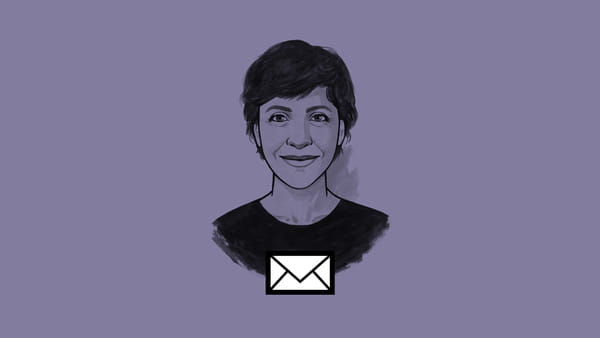Hi,
I’ve been breastfeeding every day for the past 20 months, since my son Lorenzo was born, for many hours a day. So you’d assume that I’d already done all the necessary thinking around this very foundational experience: after all, human milk is the first food we eat when we are born, or, if not, it’s the food we try to replicate.
I thought I had it all figured out. I’d sum up my past thinking like this: breastfeeding is essential in a child’s upbringing. Of course, I understood that there are occasions that don’t make it easy or possible at all, and that support is essential for those of us who decide to breastfeed.
However, I must admit that I was quite judgmental of those who – I thought – didn’t try hard enough. Why stop early or never give it a try? Why think of what’s most convenient for your work? Why not try harder?
The truth is that I, like many on the “breast is best” camp, liked to superficially repeat many claims around breastfeeding. In fact, as soon as a paediatrician confronted me with his view that extended breastfeeding was bad for my kid, I wrote an angry newsletter repeating some of these claims.
Let’s look at the first point I make in that newsletter: “Breast milk is the perfect form of nutrition for a child. It builds the immunological system to protect against infections, increases intelligence and reduces the risks of obesity and diabetes.” Now, don’t get me wrong. I checked my sources, and quoted an edition of The Lancet dedicated exclusively to the issue.
But I had my reasons for not digging deeper: I wanted to show that breast is best, so I went and picked that information without questioning further.
When Elizabeth, a member, questioned the pressure we put on women, and my colleague Lynn Berger suggested I read the chapter on breastfeeding written by Emily Oster in her book Cribsheet, I started slowing down.
What did I really think or know about breastfeeding? Is breast always best? Does it make children smarter? Is breastfeeding really natural? Should women always try harder, no matter what? And what happens to those who don’t feel like it? Do I think they’re lazy?
So, it turns out that a lot of my initial beliefs and thoughts about breastfeeding are actual myths, and some are quite pernicious and damaging.
Breast is best, we hear. But what about this woman who simply couldn’t breastfeed and wasn’t listened to and eventually ended up losing her child? Of course this is an exceptional story, but it helped me think that there is something harmful about the pro-breastfeeding messaging.
In an effort to fight against the multi billion dollar companies that sell formula milk, breastfeeding campaigns have turned a blind eye to nuance. It’s almost as if you can’t say anything negative about breastfeeding or else you are supporting the formula milk companies.
And, it turns out, I was inadvertently doing the same. Don’t get me wrong: I am a big believer in the benefits of breastfeeding, but I think we need to be honest first if we really want to support those who want to breastfeed, and to really counter the effect of formula milk companies.
(You think formula milk companies are not really guilty of much? Well, just check this out: as the transmission of corona became uncertain, they flooded the market with more messaging about how bottle feeding is safer.)
So, thank you members for your questioning and for helping me go deeper. And now, this is my stance: I am pro-choice when it comes to breastfeeding. This means that I believe that everyone should be able to have all the necessary information and tools to decide what suits them best.
Because the bottom line is this: we who feed and look after our babies need to be well ourselves in order to support our kids best. So if we don’t like breastfeeding, or it doesn’t work for us for any reason, it won’t serve us any good to be forced to do it.
Researcher Zainab Yate examines these mixed feelings at length, and I have just interviewed her after reading her book When Breastfeeding Sucks. So stay tuned for that story.
In the meantime, you can read my latest story debunking myths around breastfeeding here.
Today it’s voting day
It’s hard not to be glued to the screens to be checking what’s happening in the US. It matters, in so many ways, also beyond the US borders.
The Trump government has been pushing against reproductive rights worldwide, has separated migrant children from their families, it has implemented a “Muslim ban” that has also separated families – just to cite some of the issues that I think about every day.
But as my colleague Nesrine Malik points out, important action happens every day, not only on election day. So, thanks to all of you who are protesting for Black Lives Matter and reproductive rights, those of you who are working to change migration policies, and also those of you who are voting Trump out of power.
And if you want some more context to the election without being drawn into the noise, check out our beautifully-designed guide.
Until next week,
Irene
 Do you want this newsletter straight in your inbox?
If you’re interested in reading more about early childhood, as well as reproductive rights, sexuality and the challenges and joys of parenting, you can subscribe to my weekly newsletter about the First 1,000 Days of life.
Do you want this newsletter straight in your inbox?
If you’re interested in reading more about early childhood, as well as reproductive rights, sexuality and the challenges and joys of parenting, you can subscribe to my weekly newsletter about the First 1,000 Days of life.

